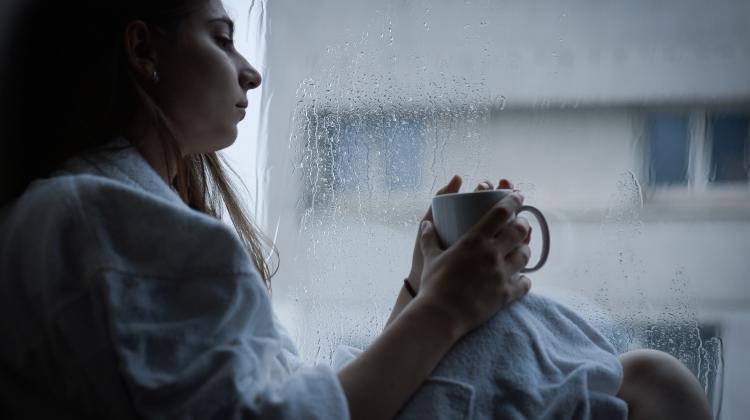Coping strategies for stress during pandemic have changed, new study finds
 Credit: Adobe Stock
Credit: Adobe Stock
Over the past year, strategies for coping with stress associated with the pandemic have gradually changed. From June, the strategy of ‘I'm doing what I can to protect myself from the coronavirus’ started to lose popularity. The depressive strategy of ‘I sit in my pyjamas all day’, and the denial strategy 'I do not follow the recommendations’ began to gain in popularity, according to research by Polish psychologists.
A report titled 'The impact of the COVID-19 pandemic on the behaviour, attitudes and well-being of Poles’ compared attitudes from four different months in 2020.
The report’s authors, Dr. Katarzyna Hamer from the Institute of Psychology of the Polish Academy of Sciences and Dr. Maria Baran from the University of Social Sciences and Humanities, asked the same questions in March (when there were about 750 cases in total), April (5.3 thousand cases), May (20 thousand cases) and December (over 1 million cases).
They said: “Between March and the turn of June, life satisfaction decreased and the feeling of loneliness increased. Fortunately, in December we did not find any further drops in these areas. However, the feeling of having social support decreased.”
The report revealed that the most negative effects were found in younger people (18-24 years old). The authors said: “This age group experienced higher distress (symptoms of depression and generalized anxiety), felt more lonely, had a lower sense of control throughout the 2020 pandemic than other age groups. In December, young people also declared a lower sense of social support than others. On the other hand, this group reported the lowest level of concern related to the coronavirus and the lowest compliance tendency.”
According to the psychologists, Poles adapted to the pandemic, although not always using the best strategies for coping with the crisis. They reported: “The level of distress, highest among our respondents at the turn of June, decreased in December. The feeling of general nervousness about the pandemic in December was at the same level as in April, it slightly increased compared to May, but individual concerns related to the coronavirus calculated in total from March have decreased and remain at the level from May.”
The issues addressed in the report included an attempt to find out how the respondents coped with this stressful situation. Possible answers included statements that matched one of the different coping strategies. These were:
Task-oriented subscale ('I do what I can to protect myself from the coronavirus');
Avoidance subscale ('I try to do something else to avoid thinking about the pandemic');
Emotion-oriented subscale ('The epidemiological situation makes me anxious if I can handle it');
Depression subscale ('I spend my day sitting in my pyjamas because I don't want feel like getting dressed');
Denial subscale: ('I am not following the pandemic recommendations because I would rather live my life now than regret it later').
The authors said: “Over the course of the year, the use of task-oriented and avoidance strategies decreased and the use of depression and denial strategies increased. This may be associated with the initial occurrence of the alarm response to a threat, and then entering the immunity/adaptation phase related to fatigue caused by with a stressful situation, which, despite the passage of time and individual efforts to regain control, does not change. A threat of some kind to all of us is the increase in denial strategy that we saw in December. Denying the existence of an unmanageable threat can lead to poor compliance thus indirectly to a greater risk of coronavirus infection.”
The initial sample was 1,098 people aged 18 and over, selected in a random and quota process. The study was carried out on the Polish Ariadna research panel. In December, the number of respondents dropped to 807 people. The amounts were selected according to the representation of Poles by gender, age and size of the place of residence.
Dr. Katarzyna Hamer (Institute of Psychology of the Polish Academy of Sciences) and Dr. Maria Baran (University of Social Sciences and Humanities in Warsaw), were assisted by Dr. Marta Marchlewska (Institute of Psychology PAS) and Professor Krzysztof Kaniasty (Institute of Psychology PAN, Indiana University of Pennsylvania).
PAP - Science in Poland
lt/ agt/ kap/
tr. RL
Przed dodaniem komentarza prosimy o zapoznanie z Regulaminem forum serwisu Nauka w Polsce.


















